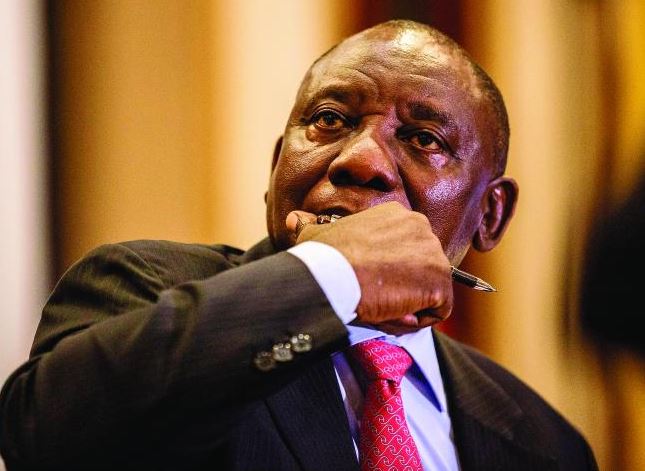By Simon Nare
President Cyril Ramaphosa has admitted that the country’s law enforcement agencies have been weakened and are unable to detect some prevalent organised crimes, including extortion.
He was responding to questions in the National Assembly on Thursday on how the intelligence agencies failed to intercept the July looting spree in 2021, illegal military training in Mpumalanga, and the spreading of kidnappings and extortion.
Ramaphosa said that despite the High-Level Review Panel on the State Security Agency in 2018 pointing out that the intelligence services were politicised and factionalised, nothing had been done to remedy the situation.
The review panel led by Professor Sydney Mufamadi found that the highly factionalised intelligence community resulted in an almost complete disregard for the Constitution, policy, legislation and other prescripts.
It also found that the intelligence community had been turned into a private resource to serve the political and personal interests of particular individuals.
Ramaphosa, who has now moved the State Security Ministry to The Presidency, said the weaknesses were being addressed on an ongoing basis and through legislation processes.
“We are proceeding to ensure that we renew, rebuild our agencies and we strengthen them as well as to empower them to be able to do their work more effectively.
“It is a process that is underway, but I am confident that we will be able to succeed in ensuring that our intelligence agencies do actively give out information that can be acted on to prevent the spate of criminality,” he said.
Ramaphosa said the National Security Council last met two days ago but did not go into detail on the outcome of that meeting.
On the Government of National Unity, the president said that in its first 100 days the GNU had proven its value and worth and attracted international and local investors.
He added that the multi-party coalition had managed a smooth transition from the 6th to 7th administration.
“It has ensured stability and continuity. It has promoted inclusivity, importantly it has brought together a broad spectrum of political parties to work together to advance shared principles and also to pursue a common programme of action to address the challenges that confront our nation,” he said.
The president said it was significant that the GNU had agreed on priority actions outlined in the opening of Parliament in July and was already making progress.
He credited the GNU for the phasing out of load-shedding and introducing new visa regulations to attract tourists in the country.
He declined to answer questions on the Phala Phala saga despite several opposition MPs pressing him for answers, saying that the matter had been referred to the Constitutional Court and that process should be allowed to unfold.
He also told the National Assembly that he was still considering Justice and Constitutional Development Minister Thembi Semelane’s report on her VBS scandal after MPs asked why he had not acted against the minister.
INSIDE POLITICS

